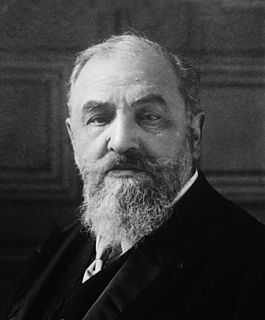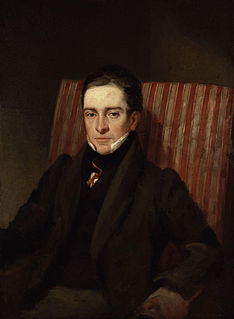A Quote by Friedrich Nietzsche
The rights a man arrogates to himself are related to the duties he imposes on himself, to the tasks to which he feels equal. The great majority of men have no right to existence, but are a misfortune to higher men.
Related Quotes
Whatever each man can separately do, without trespassing upon others, he has a right to do for himself; and he has a right to a fair portion of all which society, with all it combinations of skill and force, can do in his favor. In this partnership all men have equal rights; but not to equal things.
And what shall he suffer who slays him who of all men, as they say, is his own best friend? I mean the suicide, who deprives himself by violence of his appointed share of life. Not because the law of the state requires him. Nor yet under the compulsion of some painful and inevitable misfortune which has come upon him. Nor because he has had to suffer from irremediable and intolerable shame, but who from sloth or want of manliness imposes upon himself an unjust penalty.
What men usually say of misfortunes, that they never come alone, may with equal truth be said of good fortune; nay, of other circumstances which gather round us in a harmonious way, whether it arise from a kind of fatality, or that man has the power of attracting to himself things that are mutually related.
Hero-worship is the deepest root of all; the tap-root, from which in a great degree all the rest were nourished and grown . . . Worship of a Hero is transcendent admiration of a Great Man. I say great men are still admirable; I say there is, at bottom, nothing else admirable! No nobler feeling than this of admiration for one higher than himself dwells in the breast of men.
All the excesses, all the violence, and all the vanity of great men, come from the fact that they know not what they are: it being difficult for those who regard themselves at heart as
equal with all men... For this it is necessary for one to forget himself, and to believe that he has some real excellence above them, in which consists this illusion that I am endeavoring to
discover to you.
It can even come about that a created will cancels out, not perhaps the exertion, but the result of divine action; for in this sense, God himself has told us that God wishes things which do not happen because man does not wish them! Thus the rights of men are immense, and his greatest misfortune is to be unaware of them.






































